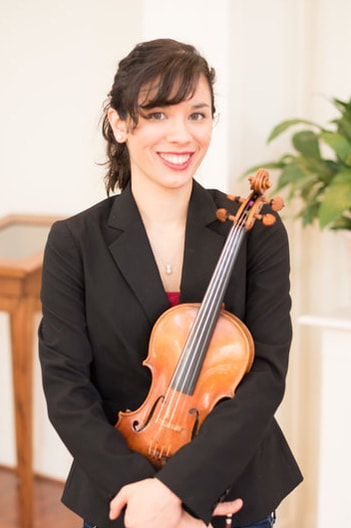How exactly does one break a habit? The first step is to want to break the habit. You need to know (and hear) that your violin playing will be better if you can fix this. The next step is to be aware of it. Let's use the example of a straight pinky on the right hand. If you aren't aware of your pinky and your teacher mentions it in every lesson, your first step is to figure out how to be aware of what your pinky is doing. There are a number of strategies you can use.
Videotape yourself playing. Ask the person recording the video to zoom in on your hand so you can see exactly what is happening. Experiment with playing small sections. Consciously form your hand to do what you want it to do. Watch yourself in the mirror. Pick a passage of music and play it with your pinky straight, then with your pinky curved. See if you notice any differences in the sound. See if you notice any differences in how you feel. Write these differences down. See if you can describe exactly what is different. For example, "I noticed that the bow changes sounded much smoother when my pinky was curved, and my arm felt less jerky." Try to create a sound and a physical image that you can remember and come back to each time you practice.
I also find that it helps to know why changing the habit will help. We all want to play better, right? Ask your teacher why it's so important to keep your pinky flexible. Generally, fixing habits will do two things: 1) make your playing sound better and 2) make the violin easier to play.
Ask your teacher if there are any exercises you can do - for example, my high school teacher had a great exercise that involved sliding the left thumb along the neck to help relieve tension. You might need to strengthen certain muscles. At the moment, to combat my habit of hunching my right shoulder forward, I'm combining stretching exercises to release the shoulder, strengthening exercises to help hold it in place, and a lot of playing in front of the mirror so I can see when the shoulder goes up. I'm also observing patterns of when the shoulder tends to tighten. I'm generally okay in slow lyrical passages, but add some fast doublestops and my shoulder tenses up immediately!
As one of the professors in Harry Potter says, 'CONSTANT VIGILANCE!' You are going to need to consciously practice for months. My teacher says that habits are never really broken, but that you can learn to contain them. Designate part of your practice time every day to only work on changing your habit. It's especially important to be aware of your habits when you're preparing for an audition or a performance. In your focus on the goal, you might try to play through your music a lot. This is when your habits might come back - still devote part of your practice for fixing them! Keep your awareness in ensemble rehearsals, too. In chamber music or orchestra there are so many things to focus on. Make sure you practice your ensemble music before rehearsal and try to fix some of the habits. I find that my old habits come back the most when I'm playing unfamiliar repertoire or when I don't have much time to learn something.
The work can be tedious and frustrating, but ultimately it will pay off! Progress is not playing pieces of increasing difficulty with the same bad habits. Progress is growing as an artist and a musician and learning to improve the quality of your playing.
For a great article on practicing, check this out: http://www.bulletproofmusician.com/how-many-hours-a-day-should-you-practice/

 RSS Feed
RSS Feed